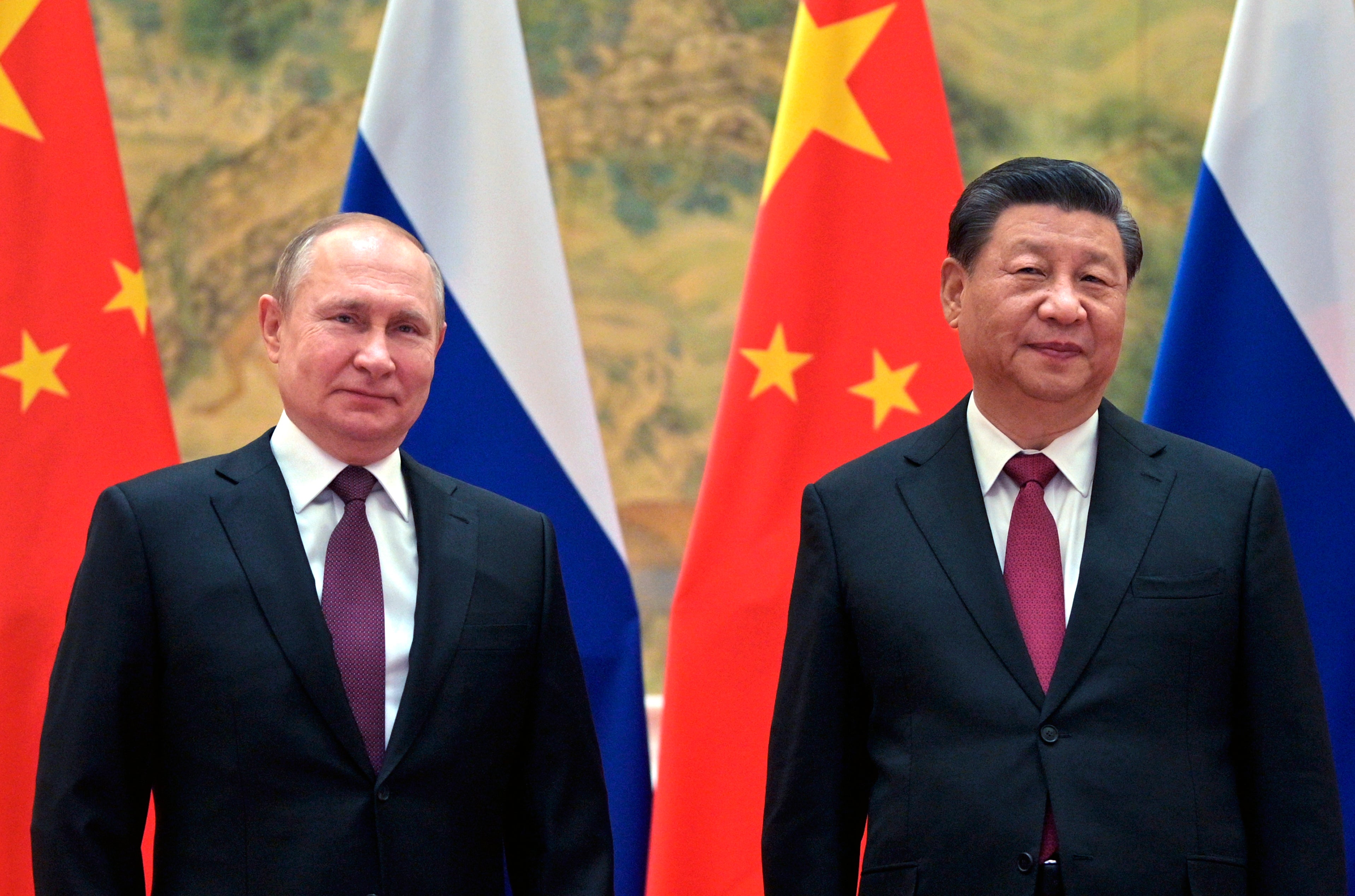The Independent's journalism is supported by our readers. When you purchase through links on our site, we may earn commission.
The west needs more ‘neutral countries’ on our side against Putin
To create a truly global alliance against Putin, we must be clearer about how it is in other countries’ national interest to be on our side


Putin’s callous disregard for Ukraine’s sovereignty unites most governments against him. But 35 countries abstained on a United Nations motion condemning the invasions (which passed 141-5), with ambivalent comments coming in from important nations. The “neutrals” include not just traditional Russian allies such as Cuba, Nicaragua and Vietnam but big hitters from South Asia and Africa.
India has pointedly refused to take sides. It has important military ties to Russia, including the recent delivery of the S-400 air defence system. While its long-term interests point to closer alignment with the USA, home-grown sentiment and immediate interests dictate caution. Strikingly, the other main South Asian democracies – Pakistan and Bangladesh – abstained too.
Africa’s two main democracies – South Africa and Nigeria – have also made it clear this is not their quarrel, as have Angola, Mozambique, Tanzania and Uganda. There is a residue of post-colonial suspicion of western motives.
This is even truer of the Middle East. I was struck by a report from Al-Jazeera (not famed for its objectivity, but an influential voice), which contrasted the outpouring of sympathy for Ukrainians with the total silence over suffering of Afghans. Families in Kabul and Kandahar face mass starvation, and children are selling their kidneys to feed their families, according to aid agencies. But our media has largely moved on to Kyiv.
Leading Arab governments are also anxious to hedge their bets. Saudi Arabia is jealously protecting its agreement with Russia to manage the oil market (and we are turning a blind eye to 80 beheadings which took place there last weekend alone). The Emirates stress their “depth of friendship” with Russia. European requests to Qatar to divert gas supplies away from Asia are merely being “studied”. Egypt is anxious to protect its supply of Russian grain. These governments are not exactly natural members of any union of democracies, and are putting their own interests first.
China, of course, is the key “neutral”. It has expressed support for Ukraine’s “territorial integrity” and “sovereignty” – concepts which matter greatly in Chinese diplomacy – and has close links with Ukraine. But in its attempts to walk a tightrope, it appears to be wobbling in Russia’s direction. China-watchers appear to be united in the view that President Xi has invested too much political capital in Putin’s Russia to abandon him entirely, however alarmed they may be by Putin’s crude use of military power. China also imports substantial amounts of Russian energy and grain. But Beijing absolutely does not want to put its economic stability at risk by incurring western sanctions and weakening its economic links with the rest of the world.
There will be two key tests for China in the next few weeks. Whether it makes good on its promise to be an honest broker, pursuing a ceasefire and a political resolution. And how it responds to (reported) requests from Russia to supply equipment such as drones, which the Russian forces lack. There are real dangers for China here. Overt breaches of western sanctions or supplying weapons to Putin will outrage Europe as well as the USA. It will also bring counter-sanctions. Putin may be about to discover the limits of “eternal friendship”.
To keep up to speed with all the latest opinions and comment sign up to our free weekly Voices newsletter by clicking here
There also dangers for the Americans. It is clear the US leadership – including Congressional Republicans – isn’t unhappy to see its Manichean vision realised: a world divided into a China-Russia-Iran union of the bad guys, versus an American-led free world. The problem is this world view is not shared more widely. Europeans are currently very grateful for the NATO shield but do not want to be pushed into taking sides in a newly polarised world. Many see the potential for a better outcome if the Chinese are given good reasons for being a responsible actor and neutral intermediary. American “hawks” risk putting the alliance against Russia in jeopardy.
Countries like India and South Africa – which practice democracy at home and neutrality on the world stage – also remind us there are big unresolved “north-south” issues. They are noticing that brown or black refugees are not welcomed as warmly as fellow-Europeans. Meanwhile, Britain’s foreign aid (which has been cut) is increasingly linked to security. Why should such countries look out for us if we do not do the same for them?
To create a truly global alliance against Putin’s modern fascism, we must be clearer about how it is in other countries’ national interest be on our side. The moral case will not be enough. Without that we can expect the number of “neutral countries” to grow.
Sir Vince Cable’s podcast, Cable Comments with Vince Cable, is available here
Join our commenting forum
Join thought-provoking conversations, follow other Independent readers and see their replies
Comments
Bookmark popover
Removed from bookmarks